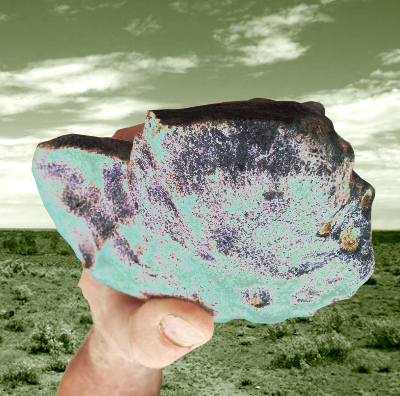Space quest success in SA
 Australian experts have used high-tech tracking techniques to find one specific rock in outback South Australia.
Australian experts have used high-tech tracking techniques to find one specific rock in outback South Australia.
Curtin University’s Desert Fireball Network team used its new network of 32 remote camera observatories to recover a recently fallen meteorite from Kati Thanda-Lake Eyre.
The hunt was on after the meteorite’s fall was spotted on November 27 last year, with experts forced to race against the rain that threatened to wash away all evidence of its landing site.
Team leader and planetary geologist, Professor Phil Bland, hand-dug the meteorite from a 42cm deep hole in a remote section of the lake bed just hours before the arrival of heavy rains.
The meteorite fall was captured by Desert Fireball Network cameras stationed at William Creek, Mount Barry, Billa Kalina and Wilpoorina.
The search required advanced image analysis, triangulation and dynamic calculations in order to locate the fall site, and a three day recovery operation involving an aerial spotter, a remotely operated drone, two searchers on the lake’s surface, and guidance around the area by local Arabana men Dean Stuart and Dave Strangways.
Professor Bland said the meteorite – thought to be a chondrite or stony meteorite – provided an example of material created during the early formation of the Solar System more than 4.5 billion years ago.
“This meteorite is of special significance as the camera observations used to calculate the fall positions have also enabled the solar system orbit of the meteorite to be calculated, giving important contextual information for future study,” he said.
He said it also provided a level of validation for the Desert Fireball Network team.
“It demonstrates beyond doubt that this giant machine that we’ve built really works,” Prof Bland said.
“We’ve got a lot more rocks on the ground. This recovery will be the first of many – and every one of those meteorites will give us a unique window into the formation of the Solar System.”
“A big thanks to the Arabana people as well for giving us access to the lake surface at such short notice. We couldn’t have done this without them.”








 Print
Print